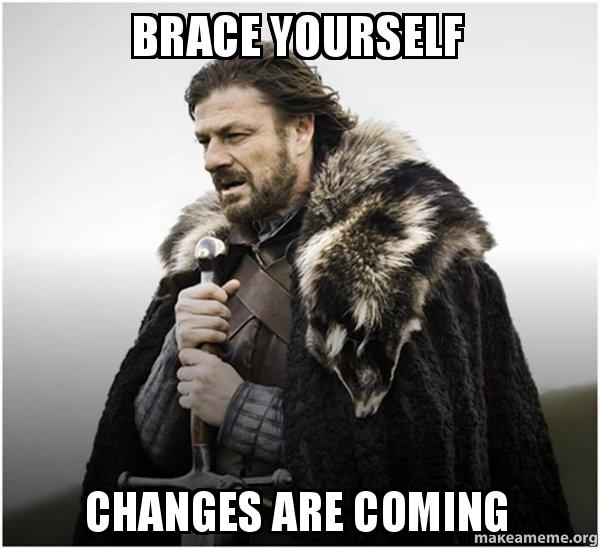Ah UTM; that U of T campus located in the middle of a forest. The one where the deer roam free and finding a spot in the library during exams is impossible after 10 a.m. Good ol’ UTM. Whether you’ve just started here or are as ancient as some of the executives on UTMSU, our experiences are UTM-specific and there are certain ones that you are guaranteed to have in your time here.
university
In Defence of an Education: Learning for Interest
Dear First-Year…
Dear first-year reader,
Believe me when I tell you that those days that seem so frustrating are just one of the many chapters of our university life. Getting lost trying to find the tutorial rooms in the basement of Davis was only one of the struggles I faced as a first-year with ambitious dreams. September 2014 was the year I learned that we need to embrace change and that things always have a way of working out.
Did I Build That Castle?

These past few weeks have been a little difficult. I’ve been thinking a lot about walls and castles and metaphorically what that looks like in my life (I blame Piers Plowman). I’ve written about this before, but I usually find it difficult to open up to people, and sometimes I’m mistaken for being cold. I find that I have this immediate reaction where I put walls up.
So Much to Do, So Little Time

I want to work with non-profits in rural India. I would like to be that person at HarperCollins who gets to read manuscripts and goes on to uncover the next best seller. I seriously want to spend a good portion of the next 20 years backpacking across Asia and South America. I sometimes think there is no better career than being a religious scholar and understanding my faith inside out. I also know that I would be one happy girl if I could dedicate my life entirely to my family (the one I currently have and the one that’s yet to arrive). In short, I want to do too many things in too short a lifetime. Not to mention I have a set of worried parents who think their daughter has no goal in life.
I remember my father giving me pep talks about the many virtues of an MBA back in grade six. There was no doubt in my mind that I would graduate in management. The catch: I hate math. I honestly thought I was done with math for good after grade 12. So I couldn’t bring myself to go through the ordeal of MAT133. However, no math equals no business degree. Meanwhile, science wasn’t even considered. I was destined for the humanities, but even humanities has too wide a scope for a person as indecisive as myself. And yet at the same time I still dream of taking over Procter and Gamble.
But what is so wrong with indecision, really? My lack of ability to decide in due time does not hamper my success. It only delays it—for the sake of perfection. I like perfecting every detail. When I finally come to a decision, it’s almost always the right one. Don’t they say slow and steady wins the race?
As for the matter of what I want to do with life, let me come out and say it once and for all: my only goal is to be a student of life. Excuse the cheese.
Every single day that I survive is an experience unique to me. Believe me, in the end it will not matter what career path I chose. What will count is what I’ve learnt over the years. True wealth does not constitute how big your net worth is, or how many friends you have. True wealth lies in how well you have come to understand life. Wisdom is the single most important power in the world.
I fancy working for non-profits so that I can understand the dirt and grime of our world. I hope to read manuscripts because I want to be the first one to benefit from a particular author’s understanding of life. I long to travel to as many countries as possible not so that I can brag about my adventures, but so that my education is not restricted to one little part of the world. People from entirely different cultures with entirely different histories can offer you more perspective on life than you ever imagined possible. I desire to study my religion because beneath every faith lies endless insight into what is right and wrong. So why not start with digging into my own? And where else is better experience of relationships to be gained than by spending time with your own family?
In the words of Sylvia Plath, “I want to live and feel all the shades, tones, and variations of mental and physical experience possible in life.” And just like her, “I am horribly limited.”
Elections Are Coming: Your Guide to UTM’s Elections Season
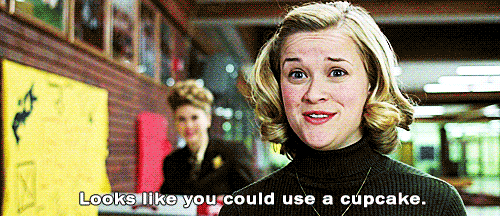
Have you seen the elections posters in the Meeting Place?
Yes, you know, the ones all over the stone pillars while you drink your coffee. The colourful long sheets of paper with the smiling faces and the “Vote for me for this position!” signs.
Have you ever stopped and read one of the posters?
They are all the same—someone is marketing themselves for some position that the majority of the student body doesn’t know exists.
Components of a candidate’s poster? You’ll find a picture of the candidate with their arms crossed, or awkwardly dangling at their sides, smiling at you. There’ll be two headings that stick out: their name near their face and the name of their sought position at the top or bottom of the page. And let’s not forget about the bubble containing what that candidate will “lobby for” or “fight for” or “advocate” in their given position.
I think that it’s more important to know what these people are running for than who is running.
Let’s walk through what kinds of elections happen at UTM, wherein students sit on councils and “lobby for” things. We all go to UTM; we might as well know and participate in running our campus.
From what I gathered from their meeting agendas obtained through a quick Google search, the following councils and committees have meetings to decide if some change or other should happen on our campus. There seems to be presentations, some discussion, and voting.
Elections you’ll be asked to vote for:
Councils and Committees
Governing Council: elections are now over, I think. The highest decision-makers at UTM/U of T. Oversees all of the other councils.
Campus Council: elections are happening, I think. Council overseeing UTM’s affairs on behalf of the Governing Council.
Academic Affairs Committee: elections are happening, I think. Makes decisions on anything concerning academic policies and teaching and research at the university, like how programs are run and what programs are offered.
Campus Affairs Committee: elections are happening, I think. Deals with campus life and campus resources.
So basically, the students running for these groups follow the given agenda and represent our voice in major campus decisions through formal discussion and voting.
And let’s not forget about the big union voting you’ll be bombarded with in the next month:
Students’ Union (UTMSU): elections are coming—check your email for updates because UTMSU always opts for email communication. The students’ union represents us—where our money goes, what services we get, and hosting or organizing a lot of campus events. From what I’ve gathered, there is the position of the president and then a bunch of VPs—external, internal, part-time, campus life, academics, and equity.
As for when you vote for UTMSU, don’t be discouraged by the pressure the candidates put on you in the hallways. Just keep in mind that these people represent you somehow, and choose accordingly. And don’t be afraid to ask why they are running or what they plan to implement, or what happens at their meetings, or even what any of it has to do with you.
As a side note, clubs also have executive teams where you can vote for who will run a specific club. Most of these clubs are structured in the same president plus VPs format.
There are also board of directors elections for larger clubs, including the UTMSU. The board of directors is the group above any given club and makes decisions about the club’s funding and format.
So this coming elections season, do your research and ask candidates what they are running for. I hope that some of my observations will help you in your votes.
Do not be a passive student on our campus! ☺
#CanadianWinterStory
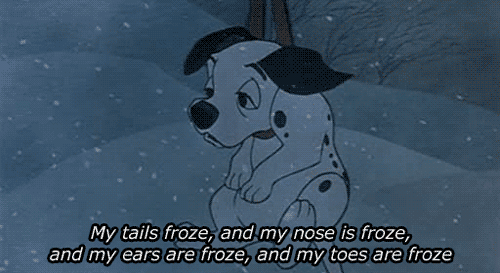
Add the layers. Bundle up. If you don’t have a hat, gloves, and scarf, this is the time to invest in all three. The cold weather that makes Canada famous is starting, just in time for students to enjoy the frosty, bone-chilling—as some would call it (including me)— winds.
Yes, it is −30 degrees, but that isn’t a good enough reason to cancel school. On the bright side, especially when the sun is out, you are reacquainted with old friends. You have the opportunity to make new ones. It is a fresh and wintry start.
If you frequently check the Weather Network, you’ll notice radical drops in temperature, with subtle decreases. Does this mean we stay indoors? No. Realistically, would we like to? Most likely, probably, yes. When you feel walk around campus in the −30 degree weather, you start to wonder what’s wrong with the world, but should we shut ourselves in because of these chilly temperatures? No!
We all head to class, wait for the bus, and wonder how and why certain buildings aren’t equipped with heaters or still have the AC on… I mean really, it doesn’t need to be a sauna, but more cold—no, thank you.
- Look for alternative routes to head to class. This is time to walk inside the CCT building rather than outside to head to IB, Kaneff, or the Student Centre.
- Leave early, arrive early, and warm up.
For commuters, sadly, the shuttle buses aren’t heated and for some reason there is always that student who has to open the window and forgets to close it (don’t do this).
To make a possibly long blog post short, there is no escaping the cold weather and we can all enjoy complaining about the decreasing temperatures, but there is an easier way to start making things better. This doesn’t have to be a time of dreary, angry moments during a (soon to end) season.
Take control of what you want to do, regardless of the possible snowfall centimetres.
- Time to curl up with that great book.
- Get some coffee, hot chocolate, or another warm drink to heat up.
- Head to the gym.
- Spend time with some friends.
- Take up a winter activity—skating, skiing, going to a warmer place.
- Most importantly capture your cold moments. Look back in a few months and share the laughs, and the cries.
Have a Piece of Humble Pie
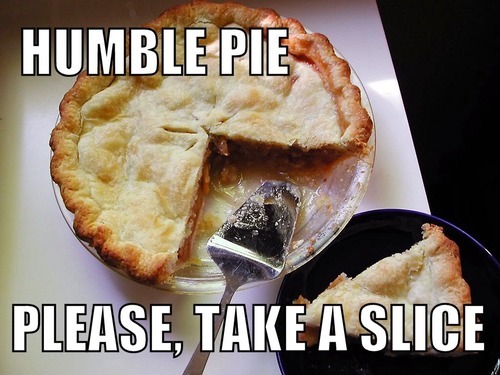
It’s great to be proud of yourself; we are all awesome people with unique talents, skills and personalities. The world is a unsettled place, but our lives lay ahead of us. We have destinies to forge, and potential greatness to realize. It’s the most exciting time in our young lives.
However, pride has its limits; beyond a certain point, it becomes distasteful to those around you. Ego has to be kept in check; we are all human, after all, and none of us are without our flaws. Thinking that we’re above the people around us, that we’re more important to the world than the strangers we pass by and meet everyday is an ideal that is destined to fail. As students at UTM, we still have a lot to learn about the real world and ourselves. We’re each the sum of different histories and experiences; don’t place yourself on a pedestal when you have no idea what other people have gone through. Their unknown hardships, and their evident compromises and triumphs, will surely make yours seem insignificant in comparison; if they compose themselves humbly, than you should to.
Humility is an under appreciated practice in our generation. Living within your means, not asking too much of others, choosing not to take yourself too seriously…these are all humble practices. They don’t devalue or depreciate you as an individual, they just make you more approachable, reliable and relatable. As cool as you think you are when you wear overpriced clothing or buy a new piece of technology, you will be even cooler to those around you when you present yourself as you really are. Look around and you’ll see dozens of teens who reflect what they believe society has determined to be favourable. They act like they don’t care about anyone else because that is apparently what justifies being cool. A totally flawed, totally misjudged perspective on being a member of the community in my opinion. They will find themselves eventually, because we all do in some way or another.
In simple terms, be yourself; when you’re proud of living as you truly are, everyone else will see it too. Respect yourself and those around you, but don’t lose sight of your own human vulnerability and fallibility. Have a slice of humble pie every once in a while… it’s better for you than you think.
Perhaps There’s Hope…
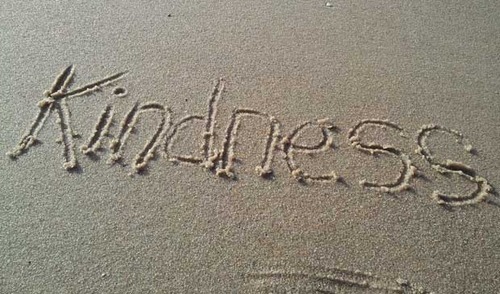
You don’t hear about many acts of kindness in the world today; sadly, stories of tragedies and heartbreaks outsell ones of happiness and hope. It seems like unrequited generosity is a lost art to most people, and that is a troubling thought. We all have the capacity to do more for others, but we just as easily make excuses
as to why we can’t do those generous things. An unfortunate cycle that
perpetuates over and over again.
Senior
citizens are often the undeserving victims of this uncaring behavior. They are considered
by some to be fragile, naïve, obstructive, and are treated as such. We have all
been guilty of avoiding a senior instead of assisting them at some point in our
lives. We immediately regretted the decision, but we have sacrificed doing the
right thing to avoid feeling embarrassed. We know better now (or we should), but
we may not choose to act on our insight when a situation presents itself. We
let our own dilemmas distract us from doing the right thing sometimes, which is
a trait we all share that demands improvement.
However,
there are people in our communities that embody selflessness and humility; we
all know and admire one person in our lives who are just like this. These aren’t
just good people, they’re great ones who do what’s right without expecting
compensation. They respect others in equal measure, regardless of differences
in age, physicality, or appearance. You don’t hear stories of their efforts
published in newspapers, but that doesn’t discourage their will to give back.
My
grandmother briefly met someone like this last week. She was at the nail salon,
waiting for her appointment, when a man entered. He had an appointment before
my grandmother, and apologized for making her wait. My grandmother thought
nothing of it, but thanked him anyways. After my grandmother had been served
and was at the register to check out, the owner of the salon told my
grandmother that she didn’t need to pay him anything. My grandmother,
perplexed, asked why. The owner revealed that the man from before had paid for
her $25 treatment. Unannounced, he did something incredibly kind for my
grandmother that she won’t soon forget. A kind gesture from a stranger, one that
most of us wouldn’t have even considered to do in the first place, made my
grandmother’s day. She has recounted it to anyone who will listen to her since.
To
the gentleman whose generous action put a smile on my grandmother’s face: your
unrequited kindness has made an impression on my family that is truly inspiring,
and for that we thank you. Acts of respect like yours prove to everyone around
you that they too can become a better person like you with ease. Your humility towards
an elderly woman you didn’t know, without the ego or desire to be formally
recognized for your action, speaks volumes about your extraordinary character.
If only we could all emulate your behaviours on an everyday basis, our
communities and societies would be happier and more prosperous places to live,
work, and participate in. Perhaps there’s hope for us yet; we just have to work
to make it a reality.
So let’s all do our part
for the community. Be the best person you can and learn to accommodate others
who are different or disadvantaged compared to yourself. There’s so much good
in the world—embrace it, and your perspective on life will change, guaranteed.
How Do You Handle Being Called Out?

Being called out on behaviour that is deemed unacceptable is problematic
for a lot of people. Being called out doesn’t mean getting your feelings hurt
or someone pointing out something feeble. A lot of celebrities recently have
been called out for saying very problematic things that “uphold the oppression
of a marginalized group of people” (YouTube user Chescaleigh). For many of us
who say and do such things, it is a strong belief that what we say shouldn’t
concern anyone else. We believe it is our right to have freedom of speech because
the Canadian Charter of Rights
protects us. However, once a line is crossed, freedom of speech starts to
become downright insulting and offensive to a marginalized group of people,
whether it be members of a certain race, religion, gender, sexual orientation,
etc.
So how do you deal with being called out? How do you properly apologize
when someone informs you that you shouldn’t say or do what you just did? How do
you handle it when someone calls you out for using the n-word and you’re very
clearly not in any position to be using that word?
Here are a few tips to help make your apology sincere:
1. Don’t become defensive. If anything you
want to say sounds something like, “You take everything so personally,” or, “It
was just a joke,” or, “I didn’t mean it like that”—don’t even think about it.
It is just an indication that whatever else you are about to say will be just
as insincere.
2. Don’t
apologize and then try to justify your actions. Being downright
defensive is one thing, but if you say, “I’m sorry,” and the next word you say
is, “but,” do not go there. Chances are, you aren’t really sorry for what you
said.
3. Understand
where they’re coming from. What they feel is valid because they’re the ones being
oppressed, not you. Ignorance is not bliss. It just means you’re very unaware
of the social structures around you.
4. Don’t take it
personally. The oppression is enacted upon the person calling you out or on the
person you are making jokes about; calling you out is a way to teach you and
educate you—it’s not about trying to make you feel extremely guilty or a
personal attack.
5. Apologize
sincerely. Tell them you’re really sorry and that you didn’t know that it wasn’t
right to say something like that.
6. Make a
commitment to change. Say something along the lines of, “How can I help?” or,
“I won’t do it again! Thank you for informing me.”
7. Remember that
calling someone out isn’t simple. It isn’t easy for someone to gather the courage and
confront you about the things you say that are offensive and oppressive.
8. Work on ways
to help others and be a strong ally to those facing oppression by the greater
social structures around us. Being called out is a way to remind you and
make you more aware. It’s to help you change. What we’ve been taught is
something we all have to unlearn. It will take time, but always be a strong
ally to those around you facing oppression.


